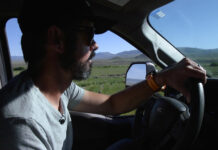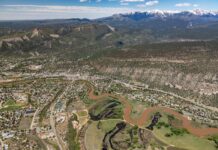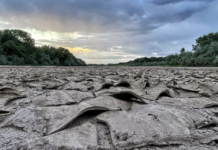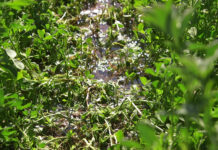Q&A: Defining the “snow deluge” and projecting its future
Scientist Adrienne Marshall explains why these extreme snow years are expected to decline in our warming world.
Why atmospheric rivers can be both harmful and helpful
These "rivers in the sky" can cause catastrophic flooding but are also critical for the West's snowpack
Renegade rancher
40 million people rely on the Colorado River system for water and power. But after 20 years of drought, the river basin is running low. For the Water Desk,...
New study shows Durango’s water supplies declining dramatically as climate change, drought hit home
A new study finds that Durango can no longer depend solely on direct flow from the Florida and Animas rivers for a reliable supply of water.
Farmers weigh tough choices as uncertain water future looms
With unpredictable water resources, farmers in New Mexico must gamble in order to keep their agricultural production viable.
Amid a withering drought, New Mexico leaders struggle to plan for life with less...
New Mexico faces tough choices as a dire and historic drought continues and the Rio Grande is unable to give everyone what they want or need.
It’s all white: Colorado statewide snowpack tops 140%, though reservoirs still low
Drought in the West persists, but the increase in snowpack will likely allow for a significant recovery in reservoirs and soil moisture.
Crop in the crosshairs
The federal government is trying to save the water supply for 40 million Americans. It has released three possible plans to protect the Colorado River Basin, which is facing...
Long-distance water
There’s desperation in the desert – for communities that could run out of water if the Colorado River keeps shrinking from overuse and climate change. Many are now looking...
Calls grow for statewide water conservation standards; some cities skeptical
With a warming climate continuing to rob streams and rivers of their flows, talk in Colorado has resumed about how to limit growing water demand for residential use.












